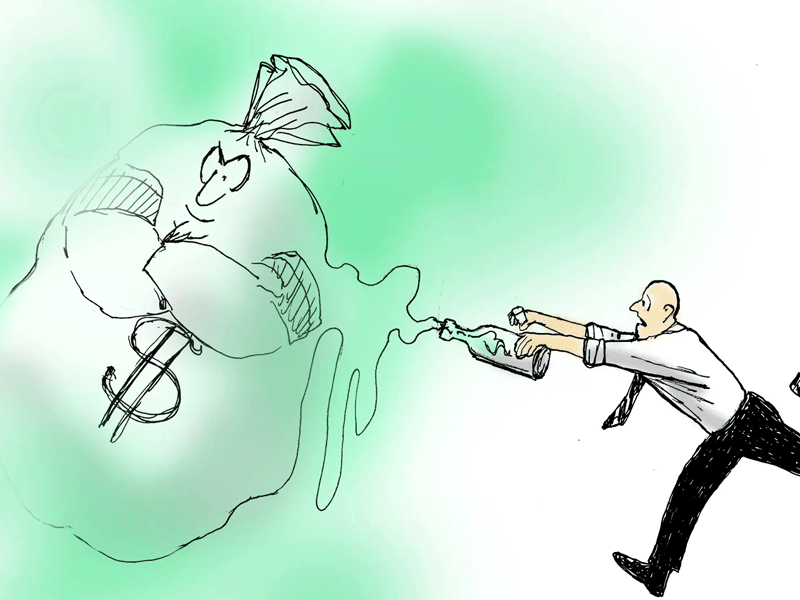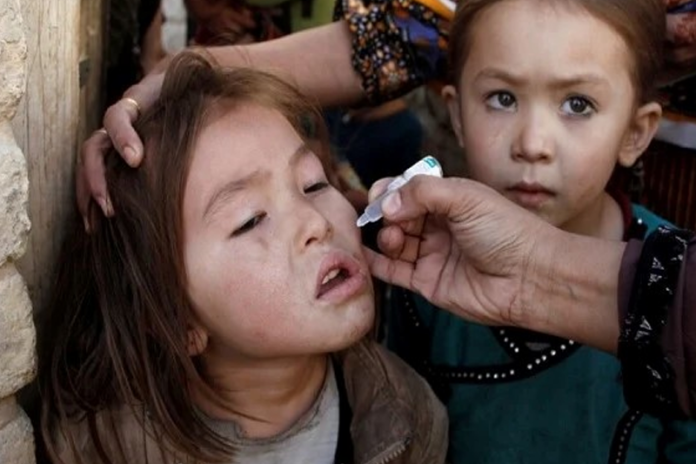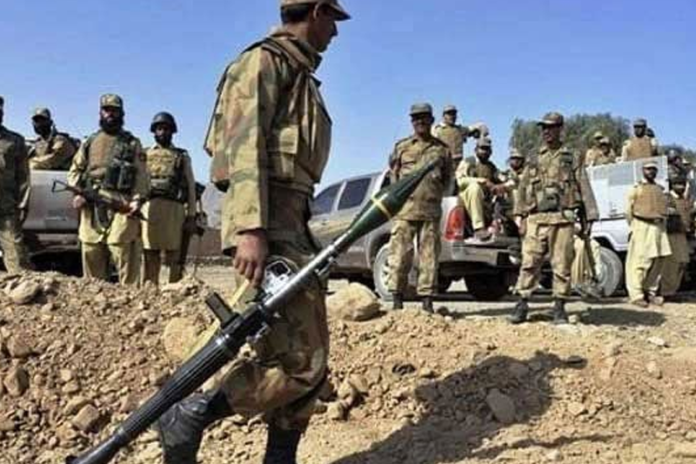The genie of inflation

- 222
- 0
Inflation in the country has been increasing gradually for the past several decades, but in 2023, all records were broken. Inflation reigned in urban areas and villages and its rate reached the highest level in the country's history with 29.2 percent.
The kitchen budget only broke the back of the poor people. The prices of flour, rice, ghee, oil, pulses, sugar, beverages, spices and other essential items increased sharply.
Large increases were seen in the prices of electricity, gas and petroleum products. Economic indicators also seem to be falling. The external debt burden increased further. There was a mixed trend in remittances from overseas Pakistanis.
Exports declined. Inflation is at its highest level since mid-2022 when the previous government took and is still taking tough measures at the request of the IMF. According to the data of the Federal Bureau of Statistics, the inflation rate was 27.3 percent in 2022, which is likely to be around 30 percent in this month (December). Thus, the year 2023 has been the most expensive year. In November, gas prices increased by 520%, electricity by 34.95%, textbooks by 94.7%, stationery by 45.9%, soap, surf matches by 43.9%, communication equipment by 39.9%, home appliances by 36% and medicines by 34.6%. Among the food items that saw the highest increase in prices in urban areas are spices 67.6%, wheat flour 63.5%, rice 58.3%, tea 52.4%, jaggery 50%, sugar 49.9% and beverages 46.5%.
In the economic report released by the Ministry of Finance a few days ago, it is claimed that the inflation rate will decrease in the coming months, but the ground reality does not match it.
200 per cent hiki in gas prices for consumers
The caretaker government has met another IMF condition by raising gas prices for domestic, commercial and industrial consumers ahead of the start of negotiations with the International Monetary Fund on the economic review for the next tranche of $70 billion. Gas prices have been increased by 200% from November 1, 2023.
In this way, an additional burden of 350 billion rupees will be imposed on the consumers. The price hike is aimed at saving gas companies from bankruptcy, ensuring gas supply at real cost and ending the flow of revolving debt of the gas sector, which is expected to reach Rs 21 trillion in June 2023.
According to the announcement of the economic coordination committee of the cabinet, gas has become expensive up to 172% for domestic consumers, meter charges have been increased from 10 rupees to 400 rupees per month. 137% for commercial consumers and 193% for cement manufacturers.
An increase of 86.4% was approved for exporters and 117% for non-export industries. Subsidies to the wealthiest exporters and manufacturers were certainly reduced but not completely eliminated. 1650 per mmbtu for commercial customers, price of bulk supply of gas has been increased from 1600 to 2000 rupees, for CNG from 1805 rupees to 4400 rupees, but there has been no increase in the price of commercial customers of roti tandoor.
In the meeting, it was also directed to ensure uninterrupted supply of gas for the fertilizer industry.
Earlier, gas prices were increased by 113% in February, which burdened consumers by Rs 340 billion. In winter, gas load-shedding and continuous increase in prices will increase the problems of the common man.
The ECC also approved the import of one million metric tons of wheat and two million metric tons of urea.
Wheat prices also remained high in 2023. Wheat is the staple food of the people of our region, whose inflation or scarcity makes the stoves of the poor go cold. If flour is expensive, it affects politics, the country's economy is affected.
The price of wheat is an indicator of the economic performance of the government, which is understood by everyone. If the country is agricultural and the crops are also bumper, the faces of the poor will light up that they will easily get flour, rice and other commodities at cheap prices. But when there is an increase of 600 rupees on forty kg of wheat, it means that one kilo of wheat has become expensive by 15 rupees.
On the other hand, after the gas price hike, the fear of further increase in inflation has been expressed which is a matter of concern. It is also said that due to the decrease of 10.8 and 11% in remittances and exports respectively and the situation of imports remaining unchanged, the extraordinary burden on the economy has become a challenge for the government.
Not only gas, other sectors are also on the IMF radar. According to sources, IMF says that Pakistan has the potential to raise revenues from the property sector and agricultural sector. IMF has also imposed the condition that serious measures should be taken to increase the tax revenue.
The severe load shedding of electricity in summer and gas in winter days and the continuous rise in prices have made life difficult for the common man. The precondition for an extraordinary increase in gas prices before the IMF visits Pakistan recently.
After the new increase, consumers are face an eight-hour announced load shedding of gas and will pay the same rate as people using wood or other energy sources, according to the IMF's strategy. It is common in many countries and the majority of them are states that are deprived of its production or unable to meet the desired target and are indebted to others. Despite this there is stability in prices.
Pakistan is rich in oil and gas, but serious efforts should be made to find them. There is a need for the federal and provincial caretaker governments to pay attention to all issues of inflation and price-hike and from keeping the hoarders and smuggling under control to improving the market situation. And also remove rust from government machinery.
In recent month, the Govt has been making tall claims to have tightened the noose around the hoarders, the smugglers and profiteers, but such claims do no hold water as we have been confronted with same old cycle of price hike and the rise in wheat prices is a case in point.
Published in The Daily National Courier, December, 11 2023
Like Business on Facebook, follow @DailyNCourier on Twitter to stay informed and join in the conversation.

















































